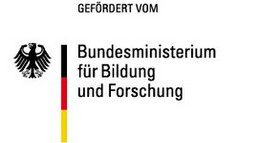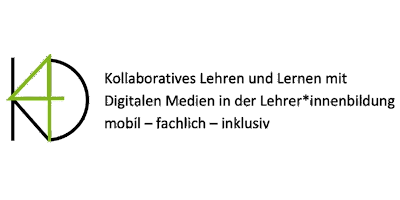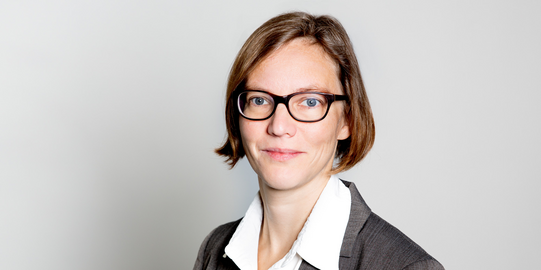Collaborative teaching and learning with digital media in teacher education: mobile – professional – inclusive
In the project K4D, concepts and formats of digital collaboration are developed in different departments of the TU Dortmund University to increase the didactic and methodological quality of teaching and learning processes through a substantial and collaborative use of digital media in university courses. The project team at the Center for Research on Education and School Development (IFS) is responsible for the scientific monitoring and evaluation of the project.
Funding

Project description

The project K4D pursues to improve the quality of teaching and learning processes in university courses regarding didactic and methodological design aspects by focusing on digital collaboration. Digitality in teaching/learning settings not only enables the processing of a broader spectrum of materials, but also time-shifted and spatially separated work.
In order to familiarize student teachers from different subject areas with digital collaborative work and to make it useful for their future careers as teachers, concepts for digital collaborative work are being developed and tested in various sub-projects in the subjects of chemistry, English, mathematics, music, social sciences and sports.
The evaluation of K4D is located at the Center for Research on Education and School Development (IFS). The study focuses on how students’ attitudes, motivational orientations and self-evaluated competences with regard to digital collaborative work and examining how they develop during their studies.
Using an online-based survey, multiple cohorts of teacher students participate in the evaluation study and answer questionnaires at the beginning and at the end of each semester. In addition, some students voluntarily take part in a follow-up survey beyond the course as they continue their studies. The longitudinal design not only provides important insights into the current state of attitudes, motivation, and self-assessed competences toward digital collaboration among future teachers, but also illustrates initial developmental trends. Thus, first implications on digital collaboration in teaching and learning settings are highlighted with respect to future research and educational practice in an increasingly digital world.
Lead researcher of the evaluation study
Lead researcher of K4D
- Prof. Dr. Stephan Hußmann
Project management
- Dr. Annika Ohle-Peters
External project partners
- Jun. Prof. Dr. Carolyn Blume (Lehren und Lernen mit digitalen Medien, Technische Universität Dortmund)
- Jun. Prof. Dr. Dorothee Gronostay (Didaktik der Sozialwissenschaften mit dem Schwerpunkt empirische Politikdidaktik, Technische Universität Dortmund)
- Prof. Dr. Thomas Jaitner (Bewegungs- und Trainingswissenschaft, Technische Universität Dortmund)
- Prof. Dr. Ulrike Kranefeld (Musikpädagogik, Technische Universität Dortmund)
- Prof. Dr. Insa Melle (Didaktik der Chemie, Technische Universität Dortmund)
- Prof. Dr. Marcus Nührenbörger (Didaktik der Mathematik, Technische Universität Dortmund)
- Prof. Dr. Jörg Thiele (Sportpädagogik, Technische Universität Dortmund)





![[Translate to English:] [Translate to English:]](/storages/ifs-ep/_processed_/8/5/csm_AdobeStock_412860748_9a2dbb816c.jpeg)
